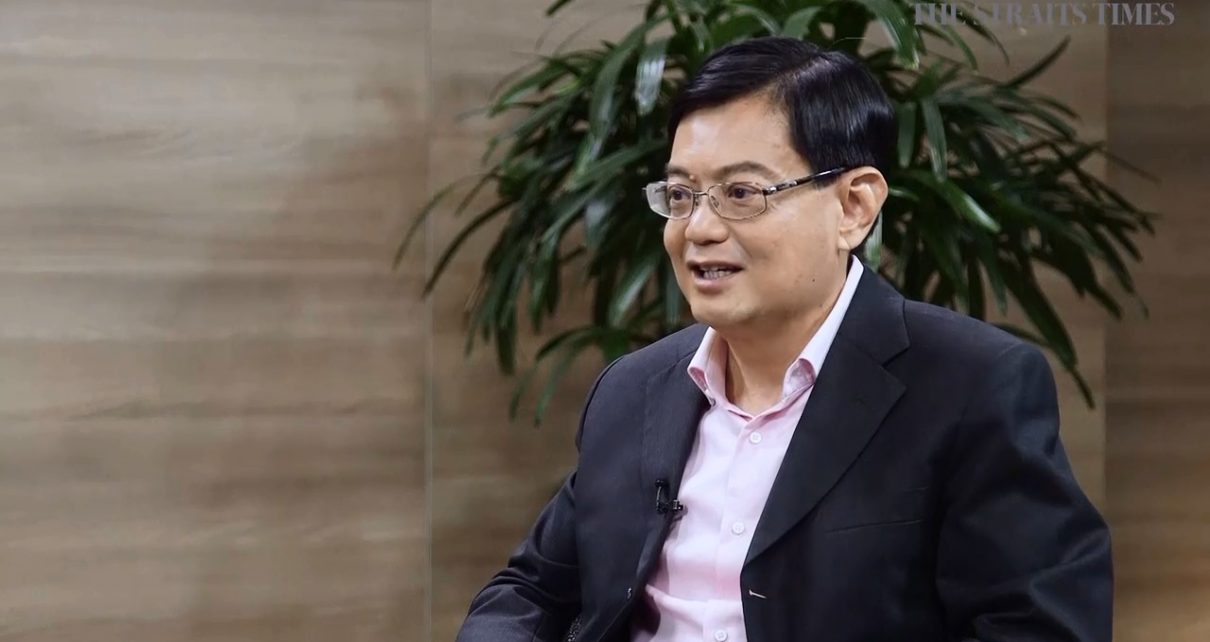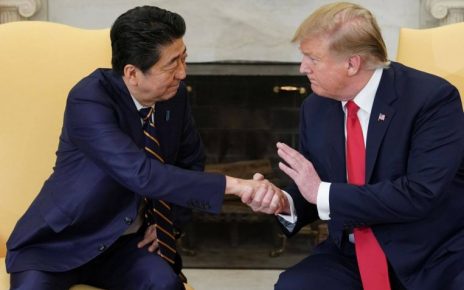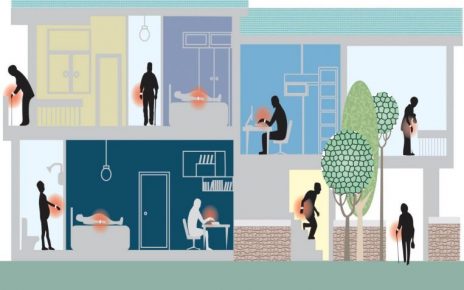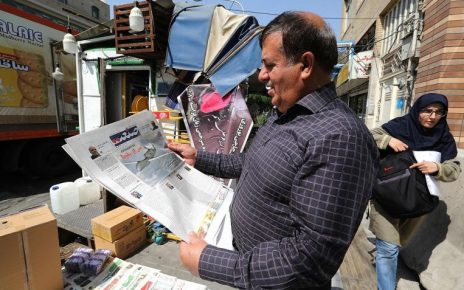
The People’s Action Party (PAP) is working on its manifesto and in the midst of selecting candidates for the next general election (GE), Deputy Prime Minister Heng Swee Keat said on Friday.
It is also reaching out to different segments of the population to make sure it is able to understand their concerns, and work with them to shape Singapore’s future, he added.
In his first interview since becoming DPM, Mr Heng, the PAP’s first assistant secretary-general, said he is working very closely with Trade and Industry Minister Chan Chun Sing, the party’s second assistant secretary-general, in the preparations.
Singapore’s next GE must be held by April 2021, and the party’s leader, Prime Minister Lee Hsien Loong, had said recently that Mr Heng would play a bigger role in the hustings.
Mr Heng said on Friday: “We are working on the manifesto on how we hope to take Singapore forward in the next five years and beyond.”
The party is also in the midst of selecting its candidates. “The party has a policy of renewing our ranks at every election and the work is intensifying,” Mr Heng said. “We’ve had some very good candidates already, but the work is continuing because we still have some time.”
The PAP also hopes to be able to convince many of the good candidates, who hail from a variety of backgrounds, to join the party.
“Our society is becoming more diverse and it’s important for us to continue to represent that diversity and to make sure that we are able to bring in the views of different segments of our society and, at the same time, to be then able to achieve a consensus that lets us turn diversity into a strength and not let diversity divide us,” he added.
Asked if the fourth-generation leaders were confident of bringing people from this diverse group into the fold, Mr Heng said they will certainly try their best.
He acknowledged that it is a lot more challenging as Singapore’s economy had grown quite well and the global economy is faring well too. Singaporeans have many opportunities, in a whole range of assignments, locally and around the world.
“What we’ll have to do is to convince them that politics is a very meaningful and impactful thing to do and that… if you want to take Singapore forward, one important way is for you to join us so that we can continue to win the trust and confidence of fellow Singaporeans,” he added.
During the interview, Mr Heng was also asked about the perspective shared by some younger Singaporeans, that a greater opposition presence in Parliament would be better for Singapore.
Mr Heng said he understands why young Singaporeans, who are exposed to Western media, may think that there should be a certain brand of democracy with two parties and that a single party in power for many years is not a good thing.
But he suggested that they look at the evidence and what is happening around the world.
A case in point is in the United Kingdom. He said he was saddened that even as Singapore is commemorating its bicentennial, having been put on the global trading map following the arrival of Stamford Raffles 200 years ago, the political situation in the UK has become quite fragmented.
“You see the very contentious debates in the British Parliament and in British society about Brexit… The fragmentation is very serious,” he said.
“The key question for us in our society is this: How do we include the views of as many people as possible in our governance process and mobilise the energies of the people in our society in our governance?
“It is not a given that having an opposition party, having multiple parties, will result in the best outcome for society.”
He noted that in many democracies, politics is almost an auction, where parties compete to promise a “much easier, better life” to win votes. This, he added, is behaving rather irresponsibly, to promise a better future which they cannot deliver, he added.
“It’s very important for us not to fall for that, because for Singapore, we have built our society to be so vibrant and successful and cohesive over these years, because we are prepared to do difficult things. We are prepared to take hard decisions,” said Mr Heng.
“And many Singaporeans know that. At the end of the day, it is the outcomes that matter, and by coming together we can achieve that outcome. They are prepared for the short-term pains. This is a very important political ethos in our society which we must keep.”
DPM Heng on Singapore’s future
Deputy Prime Minister Heng Swee Keat shares his views on the challenges ahead, the need to engage Singaporeans and his hopes for the nation
Inclusive growth
At the May Day Rally, we spoke about how we want to make sure that our growth is inclusive.
We want to create opportunities for all segments of our labour force — from the old-age workers to the managers and professional groups.
We are spending a lot of time and effort thinking about these issues, and making sure that we can continue to create opportunities for our young people.
Key challenge: Polarisation of society
Political polarisation is a very serious problem. When I was in Davos as well as recently in the US, I had many discussions with political and business leaders in various parts of society on the changing nature of societies, in different parts of the world, in Europe, in America, in Asia.
What everyone has been very alarmed by is the speed at which society is fragmenting into parts. Many societies cannot have the political consensus to do the right thing.
Even more worrying is that many societies do not take painful measures which are necessary for the long term. Everyone promises that things will be easier, better and sometimes to the point of telling untruths.
I think that that is not the kind of politics that we should have in Singapore. We must be prepared to face realities even if they are harsh, to face it squarely and say, look, how do we go about resolving this, and how do we create a better life, despite these constraints and despite these problems?
Engaging Singaporeans
So I am hoping that in the coming months, I will provide some details of how we are going to engage Singaporeans in this effort to understand the concerns of Singaporeans and the aspirations of Singaporeans even better, particularly in specific areas for different segments of our population.
Because, as I said, our society is becoming more diverse. It is important for us to understand this diversity better and for us to mobilise the different groups and to look at what we can do together.
Building on strengths
So the question for us is, going forward, how do we build on what Mr Lee Kuan Yew, Mr Goh Chok Tong and Prime Minister Lee Hsien Loong have been doing and build on the strengths of our people? Now that we have a far better-educated, far more exposed generation of people, how do we build on these strengths?
I think that we can take this a step forward, that beyond the consultation, I think we should try and build leaders in all parts of our society and enable them to do what they feel passionate about — to create a society in which those who are willing and able are able to say:
“Well, look, there is this particular issue that I care about greatly and I would like to do my part to build this, to resolve this problem or tackle this opportunity.”
Biggest unknown
I think our biggest unknown in the years ahead is going to be the nature of politics in Singapore. We have had 50-over years of very constructive politics. We have been able to keep our society cohesive and united. We have been able to achieve consensus on the large number of short-term as well as long-term issues, and that has allowed Singapore to really make good progress.
Now, will we continue on that journey?
That depends critically on the nature of politics in Singapore. How are we able to mobilise all Singaporeans to take part in this process and, at the same time, to keep politics constructive, forward-looking, so that we can tackle the many challenges and many interesting opportunities ahead.
Leadership legacy
What is very moving about Mr Lee Kuan Yew is his lifelong dedication to Singapore. I would say that Mr Goh Chok Tong and PM Lee have been extremely dedicated, and I think they’ve been equally inspired by Mr Lee to carry forth this.
In terms of what should not change, I hope that that dedication, not just of me, but of my colleagues and all Singaporeans to the Singapore cause will not change.
In fact, we strengthen this sense of togetherness — that we are in this together — and that being an independent nation means something to us. It means that we can go out to create the conditions to enable our people, not just this generation but future generations, to be able to fulfil their potential and realise their aspirations.



